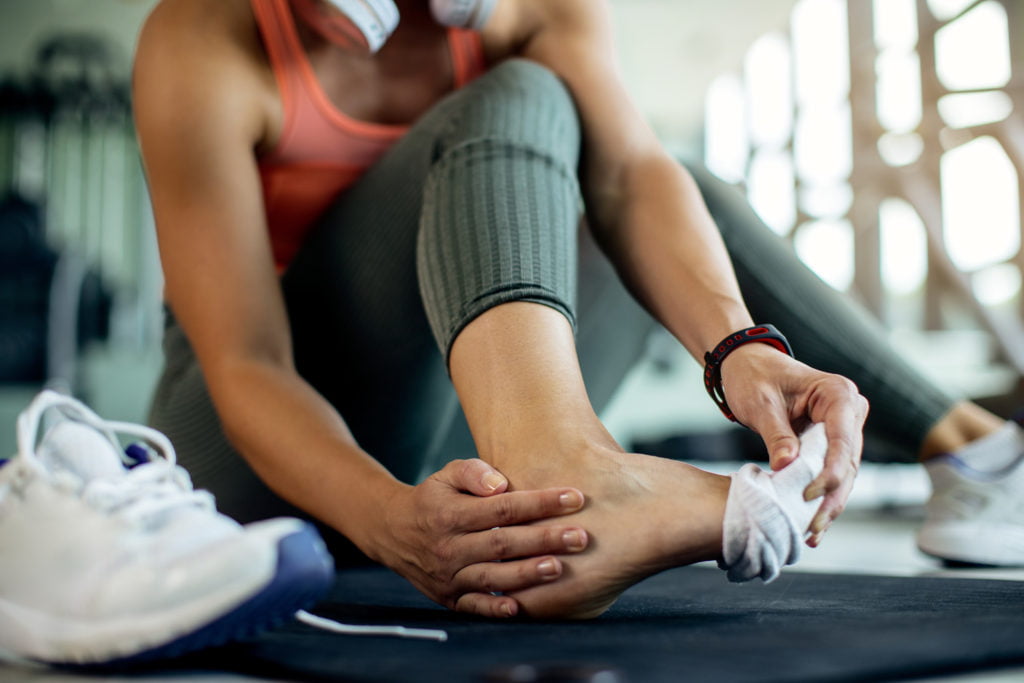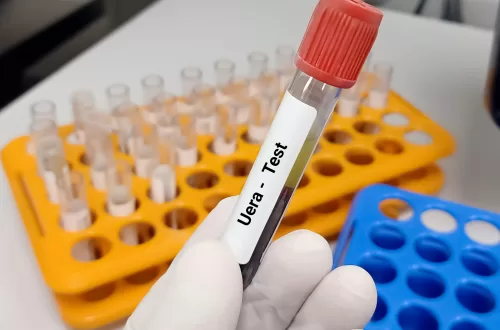What Causes Plantar Fasciitis
You know when you first get out of bed in the morning and step down on your feet and it feels like spikes are being driven through your heel? Or after a long run, your feet feel like they are on fire? If so, you may be suffering from plantar fasciitis. Let’s take a look at what plantar fasciitis is, its causes, how to treat it, and how to prevent it.

What is Plantar Fasciitis?
Plantar fasciitis is a condition that results in heel pain. The plantar fascia is a band of connective tissue that runs along the bottom of your foot from your heel to the toes. Plantar fasciitis occurs when this tissue becomes inflamed or irritated.
Plantar Fasciitis Causes:
There are several things that can contribute to the development of plantar fasciitis. These include:
- Overpronation: This is when your foot rolls inward too much when you walk or run. This puts extra stress on the tissue and can lead to inflammation.
- Poor shoes: Wearing shoes that don’t provide proper support can also lead to plantar fasciitis. This is especially true if you have high arches or flat feet.
- High impact activities: Running or other high-impact activities can put strain on the tissue and cause inflammation.
- Age: The risk of developing plantar fasciitis goes up as you age because the tissue becomes less flexible with age.
- Obesity: Carrying extra weight can also put strain on the tissue and lead to inflammation.
Treatment:
There are several things you can do at home to treat plantar fasciitis and ease the pain. These include:
- Resting: Take a break from high impact activities to allow the tissue to heal.
- Stretching exercises: There are specific stretching exercises that can help ease the pain of plantar fasciitis. Your doctor or physical therapist can show you how to do these stretches correctly.
- Ice: Apply ice to the affected area for 20 minutes several times a day to reduce inflammation. Do not apply ice directly to your skin – wrap it in a towel first.
- Arch supports or orthotics: Wearing arch supports or orthotics in your shoes can help distribute your weight more evenly and take stress off of the affected area. You can buy these over-the counter or get them custom made by a podiatrist or orthotist.
If these home treatments don’t work, your doctor may recommend other treatments such as Physical therapy, steroid injections, night splints, or surgery in severe cases.
Prevention
There are several things you can do to prevent plantar fasciitis:
- Wearing well-fitting shoes with good arch support: This will help distribute your weight evenly and take stress off of the affected area.
- Warming up before exercise and cooling down afterwards: This will help loosen up tight muscles and prevent injury.
- Stretching exercises: As we mentioned above, there are specific stretches that can help prevent plantar fasciitis.
- Losing weight if necessary: Carrying extra weight puts strain on your feet and legs which can lead to injury.
- Taking breaks from high impact activities: If you participate in high impact activities such as running, take days off in between so your body has time to recover
Plantar fasciitis is a condition that results in heel pain caused by inflammation of the plantar fascia – a band of connective tissue in the bottom of your foot. There are several things that can contribute to the development of plantar fasciitis. Overpronation, poor shoes, high impact activities, age, and obesity are just a few. There are several things you can do at home to treat plantar fasciitis such as resting, stretching exercises, icing the affected area, and wearing arch supports or orthotics in your shoes. If these home treatments don’t work, your doctor may recommend other treatments such as physical therapy, steroid injections, night splints, or surgery in severe cases. You can also prevent plantar fasciitis by wearing well-fitting shoes with good arch support, warming up before exercise and cooling down afterwards, doing stretching exercises regularly, losing weight if necessary, and taking breaks from high impact activities.






